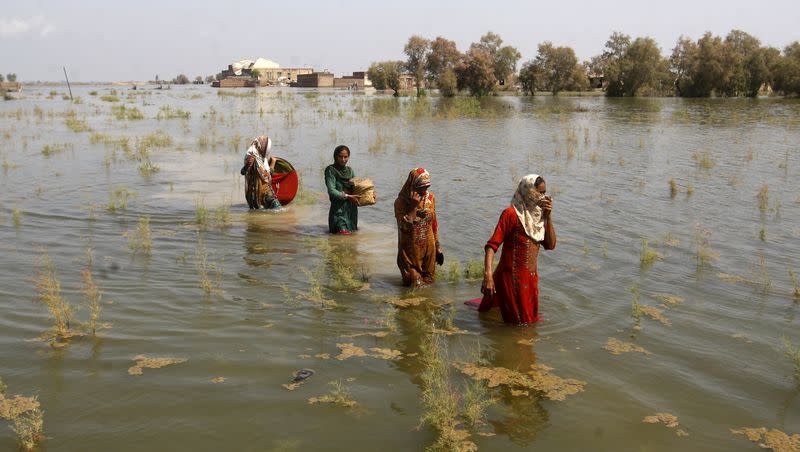UN report reveals immediate action is needed to counter climate change

- Oops!Something went wrong.Please try again later.
The United Nations warns that our current global warming situation may become out of control if climate control actions aren’t drastically implemented. That’s according to a report released on Monday that says nations have failed to reach previously set carbon-neutrality goals.
The “Climate Change 2023: Synthesis Report” is a follow-up to the annual Intergovernmental Panel on Climate Change session, a meeting where experts gather to set goals and report on environmental solutions, according to the group’s website.
CBS News said the report revealed that a previously set goal of limiting Earth’s temperature to 1.5 degrees Celsius (2.7 degrees Fahrenheit) above pre-industrial levels will not be achieved without immediate action. It particularly calls on more developed countries to move up carbon neutrality goals — possibly by as much as 10 years.
“This report is the most dire and troubling assessment yet of the spiraling climate impacts we all face if systemic changes are not made now,” Sara Shaw, program coordinator at Friends of the Earth International, said in a statement reported by CNN News.
Regarding our current climate situation, António Guterres, secretary-general of the United Nations, said in a statement: “The climate time-bomb is ticking,” and, “Humanity is on thin ice — and that ice is melting fast,” per CNN.
He also referred to the report as a “survival guide for humanity,” according to the BBC.
What happens if we exceed 1.5 degrees?
The report said that “more intense heatwaves, heavier rainfall and other weather extremes further increase risks for human health and ecosystems,” adding later that “in every region, people are dying from extreme heat. Climate-driven food and water insecurity is expected to increase with increased warming.” Those can result if we don’t curb our current carbon situation, the report said.
The Deseret News has reported previously on the world’s slowed pace in reducing emissions, noting negative health consequences of rising temperatures include heart disease, problems involving pregnancy, and mortality rates increasing.
BBC reported the Pacific Islands are expected to be hit the hardest.
What is the G20?
CBS News said the G20 is a group of 19 countries and the European Union that accounts for 80% of global gas emissions.
Guterres called on G20 member nations to “come together in a joint effort, pooling their resources and scientific capacities as well as their proven and affordable technologies through the public and private sectors to make carbon neutrality a reality by 2050,” per CBS.
Members of the G20 are Argentina, Australia, Brazil, Canada, China, France, Germany, India, Indonesia, Italy, Japan, Mexico, Russia, Saudi Arabia, South Africa, the U.S., the U.K., Turkey and South Korea, according to the U.S. Department of the Treasury.
Aditi Mukherji, one of the report’s many authors, noted those affected most by climate change are in highly vulnerable areas. “Climate justice is crucial because those who have contributed least to climate change are being disproportionately affected.”
She said almost half of the world’s population lives in vulnerable regions, experiencing deaths by floods, droughts and storms in the last 10 years.

